houseofrepresentatives
Latest
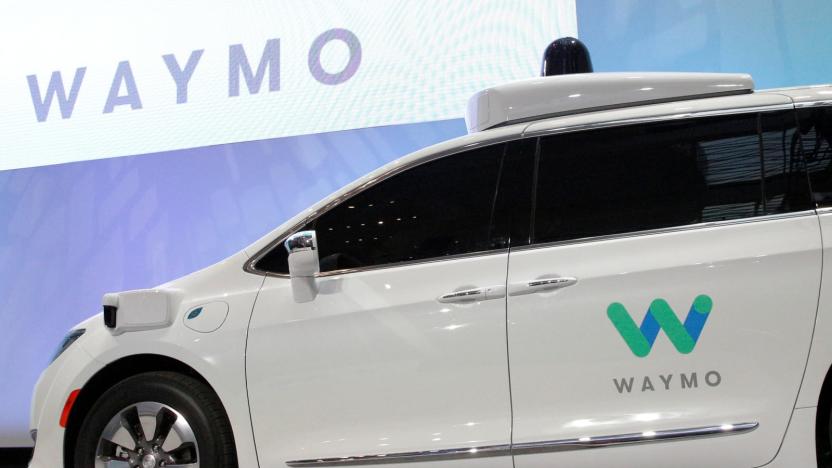
Autonomous car legislation heads to US House for vote next Wednesday
Self-driving car makers have been testing experimental models on a laborious state-by-state basis while everyone waits for Congress to enact national legislation. But last month, a House of Representatives panel unanimously approved a measure that would exempt tens of thousands of autonomous vehicles from current restrictions and sent it to the floor for a vote -- which just got scheduled for next week.
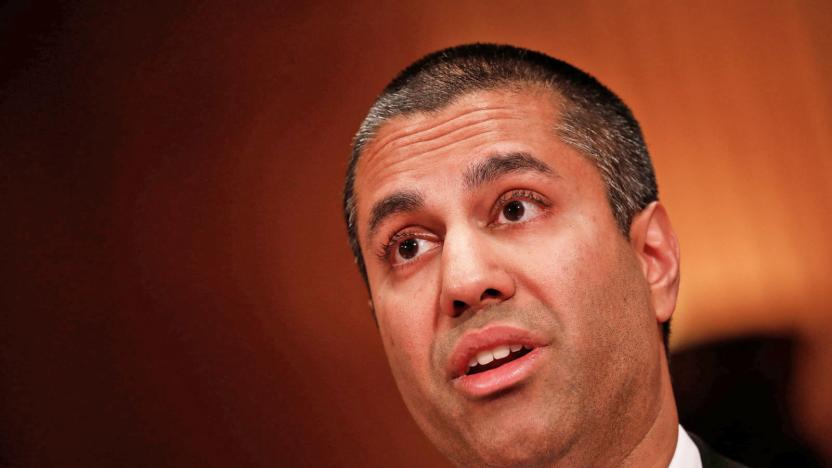
Congressmen call for investigation of FCC cyberattack claims
The FCC has claimed that the site it uses to collect public comment on its plans to roll back net neutrality rules was taken down by a distributed denial of service (DDoS) attack instead of crippled by a massive number of commenters brought about by a John Oliver segment on HBO. When pressed for details, the agency denied that it hadn't documented the "attack," that sharing any details would undermine security and have stonewalled any demands for evidence of a cyberattack. On Thursday, however, Senator Brian Schatz and Congressman Frank Pallone Jr. sent a letter to the Government Accountability Office (GAO) encouraging a full review of the FCC's practices and claims.

FCC says sharing DDoS attack details undermines security
Back in May, HBO's John Oliver exhorted viewers to add their public comment on the FCC's website for net neutrality. While at first it seemed as if the server couldn't handle the extra load of commenters, the FCC said that the site had been a victim of multiple distributed denial-of-service (DDoS) attacks. When asked for evidence of the cyberattack by regulators, senators and journalists, the FCC refused to share any data. Last month, a group of ranking House committee members sent a letter to the FCC Chairman Ajit Pai, which expressed concerns about the agency's "cybersecurity preparedness, and the multiple reported problems with the FCC's website in taking public comments in the net neutrality proceeding." Pai's response — dated July 21st and posted on July 28th — was predictably vague in responding to the specific queries from the Representatives. He said "it would undermine our system's security to provide a specific roadmap of the additional solutions to which we have referred."
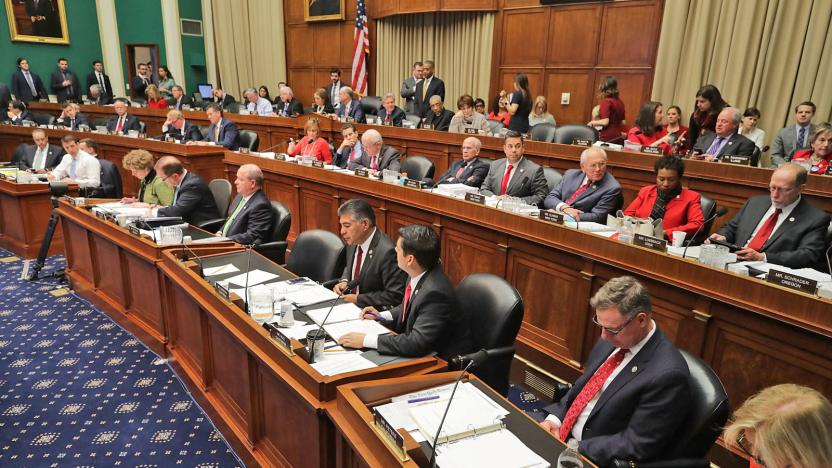
Congress invites tech CEOs to testify at net neutrality hearing
Today, during a hearing on FCC oversight, House Energy and Commerce Committee Chairman Greg Walden announced another hearing entitled "Ground Rules for the Internet Ecosystem." That hearing will discuss potential legislation regarding net neutrality regulations and the committee has invited CEOs of major tech companies and internet providers to testify. Some of the companies include Facebook, Alphabet, Amazon, Netflix, Comcast, Verizon, AT&T and Charter Communications.

Self-driving cars could hit US roads before federal laws are in place
A House of Representatives panel just greenlit a measure that, once officially signed into law, would allow thousands of autonomous cars to hit the road while federal legislators draft more comprehensive safety laws. It would be a significant first step in nationally regulating the rollout and operation of self-driving vehicles -- or at least get them on streets while the finer details are being worked out.

Congressional internet privacy bill would counter FCC rollbacks
The US House of Representatives may have voted to roll back the FCC's privacy rules and let internet providers sell your browser history without your explicit permission, but there's a proper replacement waiting in the wings... maybe. Tennessee Representative Marsha Blackburn has proposed a bill, the Browser Act, that would have both internet providers and content providers (like Facebook or Google) get your permission before selling data. They couldn't refuse service if you disagreed, either. The measure would theoretically please both privacy advocates as well as those telecoms that saw the FCC's ISP-only regulation as unfair, such as AT&T. However, there are still serious areas of concern -- it's possible that this bill would anger both sides.
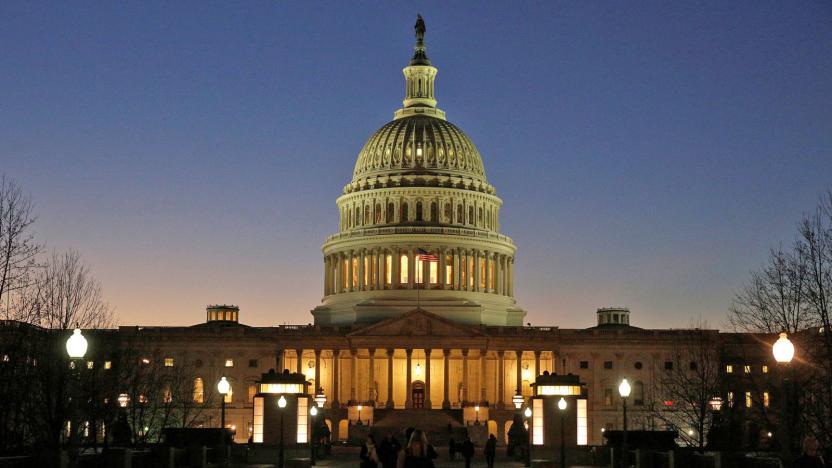
Democrats aren't backing down on internet data privacy
It's only been a few days since President Trump signed the bill rolling back rules that kept consumer data private from internet service providers, but it looks like Democrats aren't letting this one go yet. A few days ago, Congresswoman Jacky Rosen (D-NV) introduced a bill that would essentially roll back the one signed this week and reinstate all the consumer protections that were set to go into effect. Of course, both the Senate and House of Representatives just voted to do away with those protections, so this bill is likely going to serve more as a symbolic gesture rather than a piece of legislation that'll actually make a difference to US citizens.

House bills would ban warrantless use of fake cell sites
House representatives are making good on their plans to implement clearer cellphone surveillance laws. A bipartisan group (led by House Oversight Committee chair Jason Chaffetz) has put forward two bills that would keep the use of Stingrays and other cell site simulators in check. The most prominent, the Cell Location Privacy Act, would require that law enforcement get a probable cause warrant before using one of these fake cell sites to track suspects. There would be exceptions for "exigent circumstances" and foreign intelligence gathering.
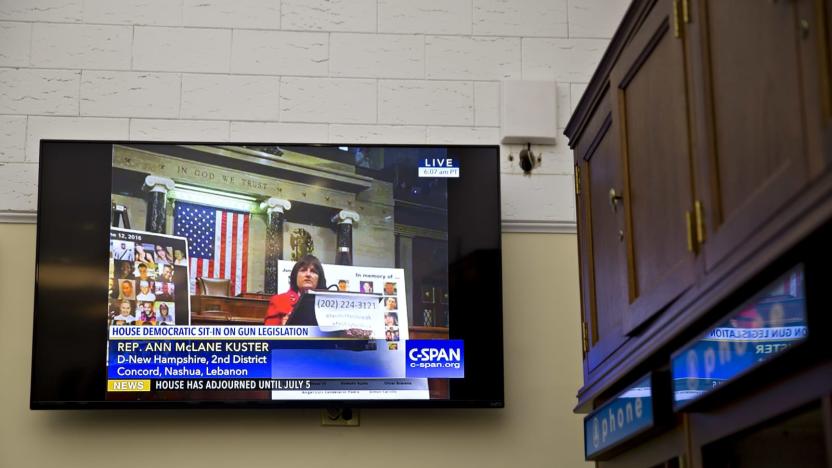
Republicans propose banning livestreams on the House floor
Remember when House Democrats staged a sit-in to insist on a vote for gun control legislation, and relied on livestreams and social networks to keep their message alive when TV cameras weren't running? Republicans weren't happy about that... and now, they're hoping to prevent a similar protest from happening again. The party has proposed measures that would fine members of Congress up to $2,500 ($500 for the first offense) if they record or livestream images and audio on the House floor. According to Paul Ryan spokeswoman Ashlee Strong, it's meant to "ensure that order and decorum are preserved" so that politicians can "do the people's work."

Democrats slam Republicans fighting the internet handover
If you thought Facebook and Google raised a big fuss over Republican opposition to the US' plan to hand the internet's 'keys' (the authority managing domain name assignments) to an international governing body, you haven't seen anything yet. A quintet of House and Senate Democrats have used TechCrunch to post an open letter to the Republicans, chastising them over their resistance to the transition to ICANN. While Senator Ted Cruz and supporters have previously claimed that international control would make it easier for authoritarian governments to censor the internet, the Democrats reject this outright. The task of managing the domain name system is "clerical," they argue -- countries like China or Russia can't manipulate content just because DNS isn't under exclusive US oversight.
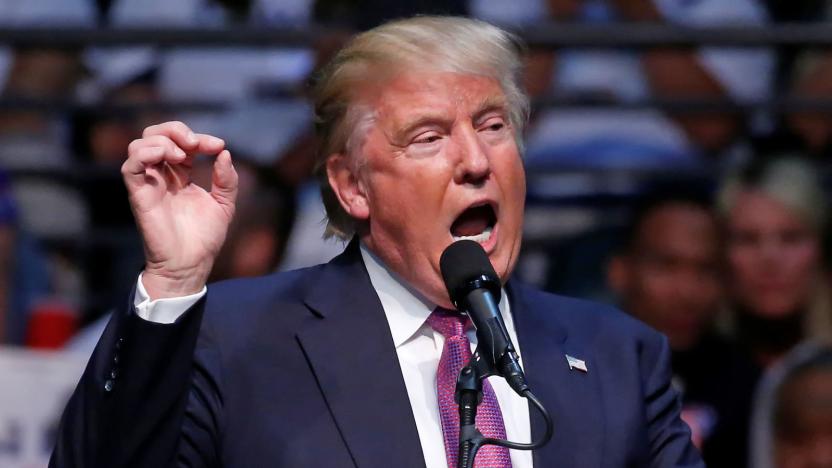
Democrats want FBI to investigate any Trump link to cyberattacks
You may have been laughing when Donald Trump responded to word of possible Russian involvement in DNC hacks by joking that the country should hack Hillary Clinton's email server, but some House Democrats are taking it very seriously. Representatives John Conyers, Elijah Cummings, Eliot Engel and Bennie Thompson have sent a letter asking the FBI to investigate the possibility of a link between Trump officials and the attacks. They claim it's vital to know whether or not Trump and his staff "directly caused or indirectly motivated" the hacks -- they could be helping Russia interfere with the election, if you believe the letter.

FBI director to testify on Clinton email investigation
Were you confused when the FBI said that Hillary Clinton likely broke the law by sending classified email through her private email server, but recommended against charges? You're not the only one. The House Oversight and Government Reform Committee has announced that FBI Director James Comey will testify regarding that decision at a hearing on July 7th. Republican Chairman Jason Chaffetz argues that the recommendation was "surprising and confusing," and disagrees with Comey's statement that Clinton didn't mean to break rules. "Individuals who intentionally skirt the law must be held accountable," Chaffetz says in a statement.
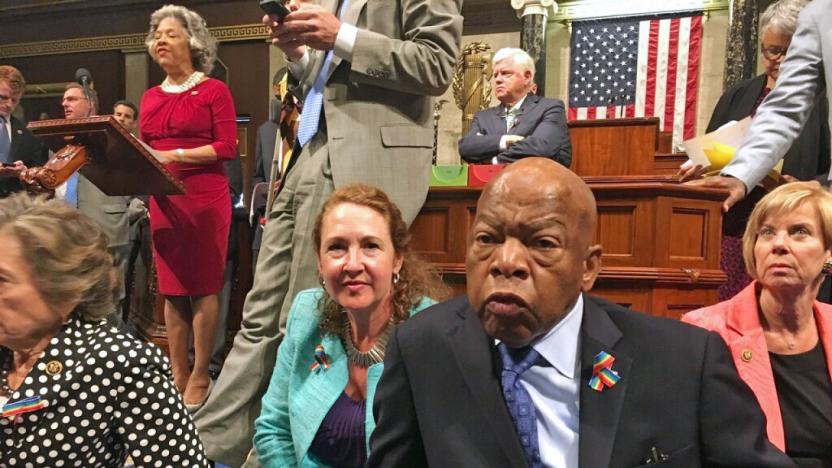
Democrats use Twitter to amplify House sit-in over gun control
Democrats are currently staging a sit-in at the House of Representatives to demand a vote on gun control legislation, and Republicans aren't happy about it -- they're declaring recesses to shut off cameras (which are controlled by the House) and downplay the protest. The Dems aren't letting that get in the way, though. They've gone into overdrive using Twitter, Periscope and Facebook Live to advertise the sit-in and draw attention to their cause. Even C-SPAN has turned to displaying tweets and live streams in the absence of TV broadcasts from the House floor.

House votes down privacy measure blocking backdoors
The US House of Representatives voted Thursday to block an amendment that would have prevented the government from stepping in to force weakened encryption and security backdoors. Although Politico reports the provision received increasing support in the House over the past two years, that support has weakened in the wake of the Sunday's mass shooting in Orlando.

Republican budget proposal would gut net neutrality
It's no secret that the Republican Party hates net neutrality regulation, but it's now ready to raise the stakes. House GOP members have drafted a 2017 budget proposal that would neuter some of the FCC's bigger telecom initiatives, at least for a while. On top of cutting the FCC's budget by $69 million, it would prevent the FCC from enforcing its net neutrality rules until some court cases wind down -- which, knowing the legal system, could take years. You could also forget about short-term attempts to open up competition for TV set-top boxes, as the legislation would prevent the FCC from taking action on its set-top rule until a study finishes.

Senate introduces bill to limit the FBI's new hacking rules
A bipartisan group of senators have introduced a new bill called the Stop Mass Hacking Act that would block expanded hacking powers the U.S. Department of Justice claims are necessary to keep up with "sophisticated 21st century criminals."

Congressional IT desk warns representatives of ransomware threats
The technology service desk at the House of Representatives has sent out an email warning your state representatives to be careful which links they follow from their email inboxes. According to the email, which was forwarded to TechCrunch today, there has been an uptick in the number of ransomware attacks on the House network and the congressional IT folks will start banning access to YahooMail.

Email privacy bill passes the House with flying colors
Authorities might soon be required to get a search warrant if they want providers like Gmail to hand over your emails, even if they're older than 180 days. The US House of Representatives has unanimously passed the Email Privacy Act, which updates the 1986 Electronic Communications Privacy Act (ECPA). Under ECPA, authorities are allowed to request for old emails with only a subpoena instead of a warrant. The new bill's advocates argue that ECPA is incredibly outdated at this point in time and the subpoena loophole should be closed.
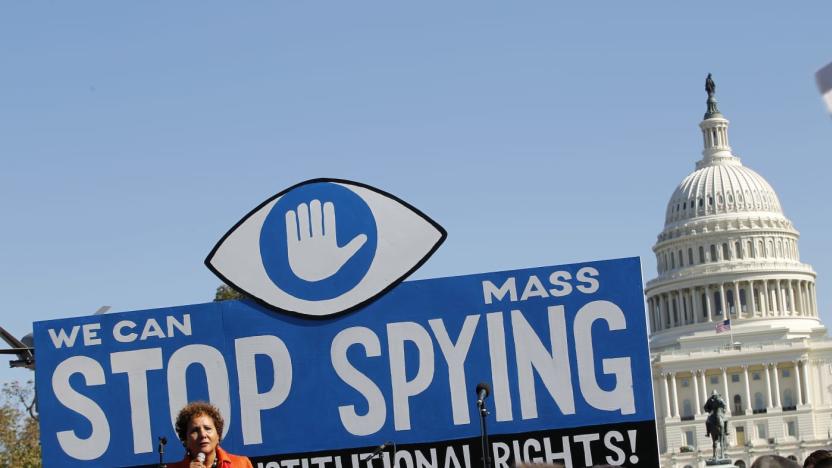
Congress asks the NSA how often it spies on Americans
Thanks in part to leaks, it's no secret that the National Security Agency's foreign intelligence gathering also covers some Americans. But just how many Americans are under watch, and how many are simply innocents caught in the crossfire? Congress wants to find out. The House Judiciary Committee has sent a letter giving Director of National Intelligence James Clapper until May 6th to provide a "rough estimate" of how many Americans are swept up in spying under the Foreign Intelligence Surveillance Act. While the NSA is supposed to keep the collection of US data to a minimum, it's not clear that the current approach is effective. There's a concern that many people are unnecessarily included, opening the door to abuse.
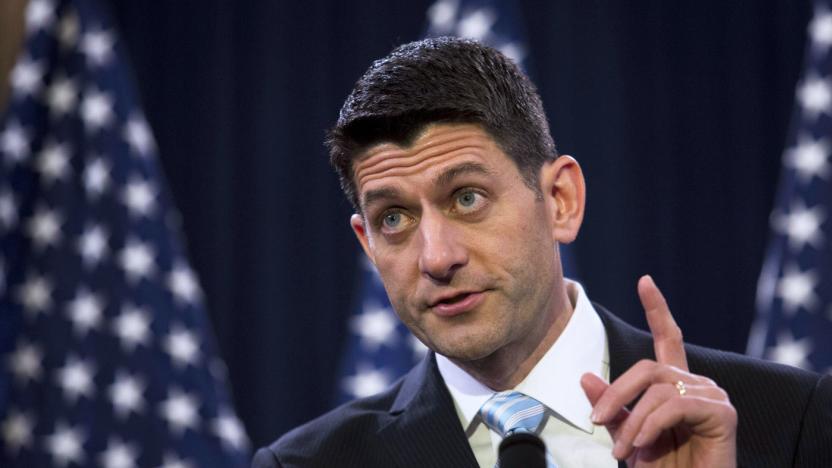
House votes to block FCC from regulating broadband prices
In its guidelines for an open internet, the FCC gave itself the ability to regulate what internet customers in the US will pay for service by classifying broadband as a utility. The US House of Representatives is looking to take that power way, and today voted to pass H.R 2666, or "No Rate Regulation of Broadband Internet Access Act." The bill has drawn criticism from both politicians and open-internet supporters for being vaguely worded and that it could allow service providers to sue the FCC for unrelated enforcement actions (like fines). President Obama already said he'll veto the legislation if it arrives on his desk.






